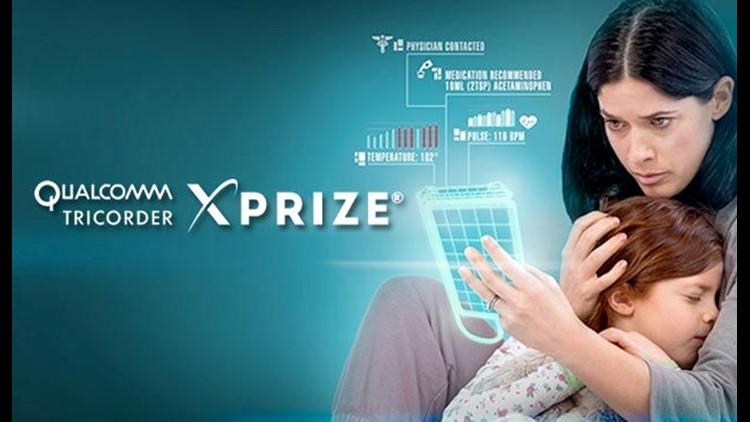SAN DIEGO (CNS) - The XPrize competition to create a mobile diagnostic device like the tricorder of "Star Trek" fame is down to two finalists, according to San Diego-based Qualcomm, which is offering $10 million in prizes to the developers.
The company also announced that consumer testing of the finalists' products in the 4-year-old XPrize competition was underway. The finalists are:
- Dynamical Biomarkers Group, of Zhongli City, Taiwan, a team of physicians, scientists and engineers, and mobile technology company HTC, led by Harvard Medical School professor Chung-Kang Peng; and
- Final Frontier Medical Devices, Paoli, Pennsylvania, led by the founders of Basil Leaf Technologies, brothers Dr. Basil Harris, an emergency room physician, and George Harris, a network engineer.
"It is an impressive achievement for these two teams to advance to the consumer testing stage of the competition with their devices," said Grant Campany, one of the organizers of XPrize.
"This stage not only takes us one step closer to transforming sci-fi vision into a real-world impact, but more importantly, we are another important step closer to bringing a very user-friendly device to consumers around the globe, allowing them to proactively manage their own health in a way that has never been done before," Campany said.
The devices are required to weigh fewer than five pounds, diagnose and interpret a set of 13 health conditions, and continuously monitor five vital health metrics.
The conditions tested include anemia, atrial fibrillation, chronic obstructive pulmonary disease, diabetes, leukocytosis, pneumonia, sleep apnea, urinary tract infection and otitis media - a group of inflammatory diseases of the middle ear.
In addition to the core conditions, devices must detect three elective health conditions from a set including HIV, hypertension, melanoma, shingles and strep throat.
"Star Trek has inspired many engineers on a quest to improve the world by turning science fiction into reality," said Paul Jacobs, executive chairman of Qualcomm.
"The communicator preceded the smartphone, which has revolutionized our personal interactions, and provided instant access to knowledge and entertainment," Jacobs said. "Now, our healthcare will be improved through the hard work and ingenuity of the Qualcomm Tricorder XPriz teams who are bringing the devices to life."
Consumer testing will continue through early next year at the Altman Clinical Translational Research Institute at UC San Diego. The testing is assisted by a clinical coordinator who trains the consumer on the device, followed by an approximately 90-minute independent session that provides a diagnosis within minutes.
The winner of the competition will be awarded $6 million, according to Qualcomm. The second-place team will receive $2 million, with the rest handed out for certain scores and milestones.
RELATED COVERAGE



